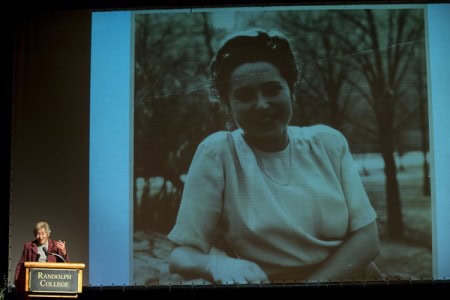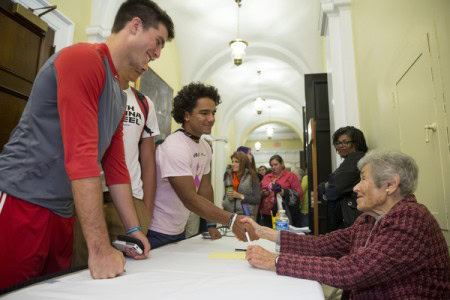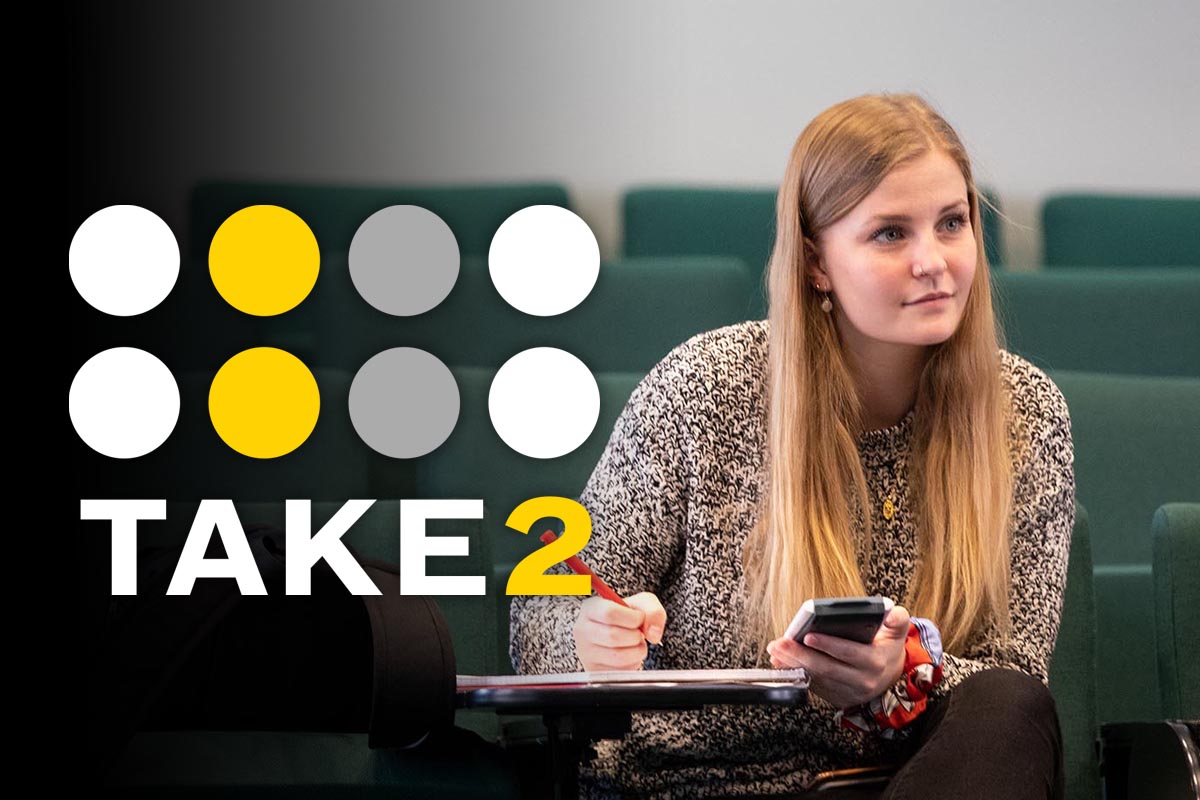Holocaust survivor encourages students to stand up for others
Margit Meissner has a long bucket list. But it was easy for the 92-year-old Holocaust survivor to narrow it down when an audience member at Randolph College asked her about her life goals.
She wants to learn Russian, and she is taking lessons now, she said.
 “I hope that one day, I will know Russian well enough that I can read Crime and Punishment by Dostoyevsky in Russian,” she said. “Right now, I’m reading a children’s fairy tale book. I have a long way to go.
“I hope that one day, I will know Russian well enough that I can read Crime and Punishment by Dostoyevsky in Russian,” she said. “Right now, I’m reading a children’s fairy tale book. I have a long way to go.
“In my next incarnation,” she added, “I will be a soprano singer.”
During a public lecture Tuesday evening, Meissner shared her experiences escaping the threat of Nazi persecution in the early days of World War II. An audience of Randolph students, faculty, and staff, as well as many members of the Lynchburg community, listened intently as she described the harrowing experiences that drove her family from their home.
They also heard about her reason for being optimistic about the future.
Meissner was born in Austria about 10 years before Adolf Hitler took power in Germany. By the time she was 16, her life was upended by the expanding power of the Nazi regime. Her three older brothers fled to three different countries for safety.
“No one wanted to accept refugees, especially Viennese refugees,” she said. “My family became scattered across the continents, and for years and years we did not see each other.”
In 1938, Meissner’s mother sent her to live in Paris and later followed after her. But within two years, Germany was at war with France. In May 1940, her mother was taken to a detention camp for foreigners, many of whom were suspected for being spies for Germany.
 When the German military approached Paris, Meissner escaped on bicycle and went to find her mother. Narrowly missing bombings and multiple close calls with police, Meissner and her mother eventually escaped France, only to be arrested after crossing the border into Spain. Eventually, they were released and in 1941 they were able to join Meissner’s brother in the United States.
When the German military approached Paris, Meissner escaped on bicycle and went to find her mother. Narrowly missing bombings and multiple close calls with police, Meissner and her mother eventually escaped France, only to be arrested after crossing the border into Spain. Eventually, they were released and in 1941 they were able to join Meissner’s brother in the United States.
The time Meissner spent in the Spanish jail was eye-opening. “I suddenly began to understand that the kind of world that I lived in was a very narrow world, and that I had to examine it more carefully,” she said. “I think this jail experience in Spain really made me into the kind of person who I have become.”
Meissner has spent much of her life as an activist who speaks out for the rights of other people. She encouraged her audience at Randolph College to do the same.
“There’s a great deal of good that you can do if you’re aware of prejudice and scapegoating and bullying,” she said. “This is your business. You must not let this go without interfering.”
Meissner added that she believes the world is becoming better and more inclusive. “I’m a real optimist because I believe that the technological and communication revolution is a vital occurrence that brings people closer together,” she said. “When people get to know each other, they can learn to appreciate each other.”
Tags: history, holocaust, holocaust survivors, speakers
